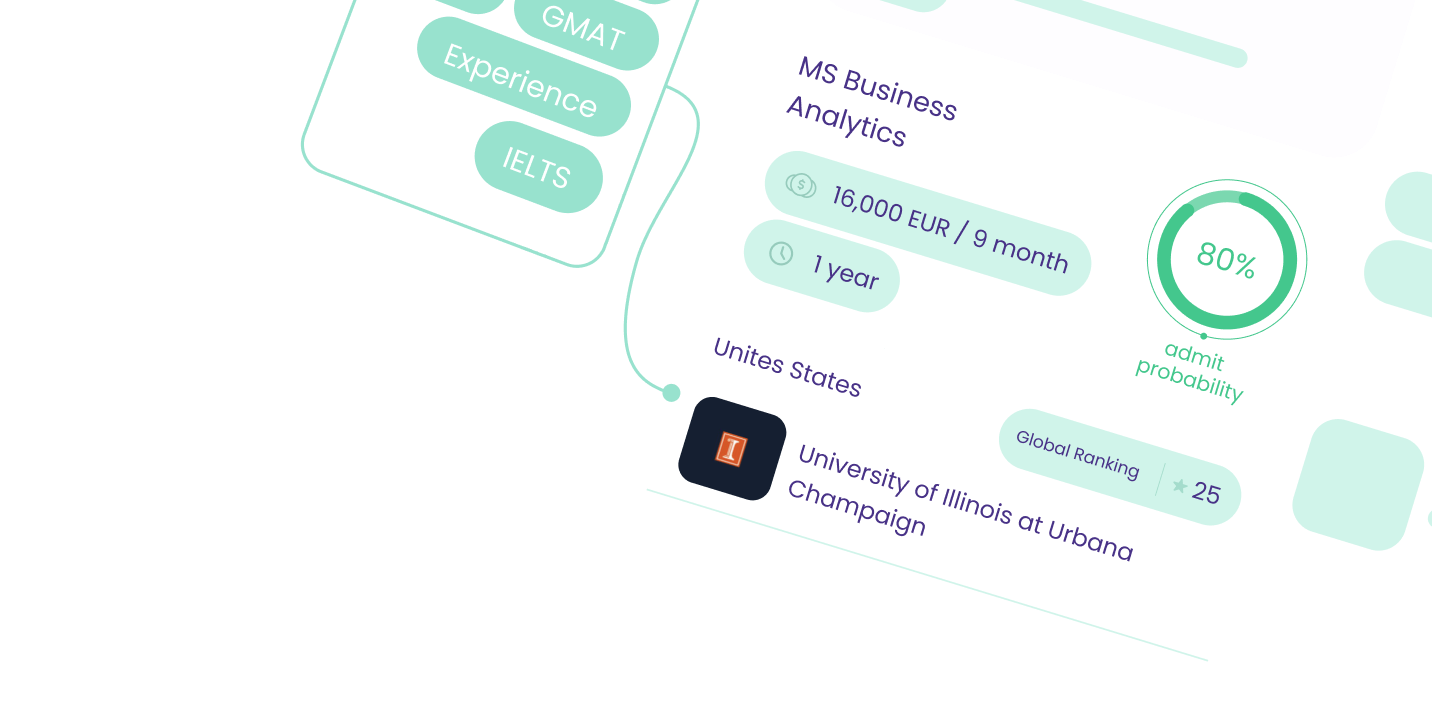When it comes to preparing for the GMAT, scheduling your test is just the first step in a long journey towards achieving your desired score. However, scheduling your test can also be a critical step in your preparation process.
Choosing the right test date and location can impact your ability to perform at your best, as well as affect the overall timeline of your application process. That’s why it’s important to have a solid understanding of the scheduling process and all the factors that go into it.
In this article, we’ll cover everything you need to know about scheduling your GMAT test, from understanding the registration process and the various fees involved, to selecting the best test date and location for you, to preparing for test day and beyond.
We’ll also discuss some common challenges that test-takers face when scheduling their test and provide tips and strategies for overcoming them.
By the end of this article, you’ll have a comprehensive understanding of the GMAT scheduling process and feel confident in your ability to select the right test date and location for you.
Whether you’re just starting your GMAT preparation journey or you’re a seasoned test-taker looking to optimise your testing strategy, this guide will provide you with the knowledge and tools you need to succeed. So, let’s dive in and start scheduling your GMAT test today!
A Brief Overview of the GMAT Test

The GMAT (Graduate Management Admission Test) is a computer-based test that business schools use to evaluate your application for an MBA and other management programs. It is administered year-round around the world. The end goal behind the GMAT is to test your ability to reason, think critically, and communicate ideas effectively.
The GMAT exam consists of four sections to evaluate your application. However, you must be clear about one thing – the test is adaptive, which means the next question you get will always depend on your previous question’s answer.
With the GMAT being the primary requirement to get into any world-class university or other institution and get an offer letter in your desired program, you must score well in all four categories. Many business schools utilise these test results to assess your academic potential and the preparation of their prospective applicants. A good GMAT score can help you and improve your chances of attending your selected school, but it does not guarantee your admission.
Sections of the GMAT Test

Every GMAT exam consists of four sections – Analytical Writing Assessment (AWA), Integrated Reasoning (IR), Quantitative Reasoning, and Verbal Reasoning.
1. Analytical Writing Assessment (also AWA)
The AWA section of the GMAT exam measures your ability to analyse and write up an argument presented to you in written form. You must complete this section in 30 minutes.
The argument you get will typically be a short paragraph with a point of view on a specific topic. You must present a well-written and well-reasoned commentary on the given argument by analysing and finding flaws in the reasoning or assumptions.
The essay or commentary you write will be evaluated by a human grader and a computer algorithm, and the average of these two scores will be your final score. The scores range from 0 to 6 in half-point increments, with 0 being the worst and 6 being the best.
While the AWA section may seem daunting to win, you can perform well in this section with little effort, practice, and preparation. You must exhibit strong critical thinking skills, the ability to analyse complex arguments, and written communication skills to perform well.
Some tips for preparing for the AWA section of the GMAT include practising your writing skills, reading and analysing arguments from various sources, and reviewing sample AWA prompts and essays to understand better what they expect from each applicant like you.
This section aims to understand your ability in two essential skills used in the business field and beyond – thinking critically and communicating effectively.
2. Integrated Reasoning (also IR)
The GMAT’s IR section tests your capacity for analysing and comprehending data from a variety of sources. They present you with graphs, tablets, and text information, from which you must complete the section in 30 minutes by answering the 12 questions.
The questions in this section test your ability to process complex information and how well you use the available data to solve problems and make effective and productive decisions. However, answering these questions involves multiple steps. You must use analytical and reasoning skills to give the correct answer.
In your exam, you might encounter the following types of questions:
- Multi-Source Reasoning: As the title indicates, these questions present you with information from multiple sources, and using the available information, you must give conclusions and answer the questions.
- Table Analysis: You will most likely see the table of data and information. You must analyse the data and answer a bunch of questions.
- Graphics Interpretation: You will get questions based on the graphs and charts. To answer accurately, you must study the given graphs and charts deeply.
- Two-part Analysis: You must give the correct answer by analysing two different paragraphs individually and combining them.
You need strong analytical skills, reasoning skills, and the ability to quickly understand complex data sets to perform well in this section. Practising sample questions and reviewing data sets and reports are a few ways to prepare for the exam.
This section aims to understand your abilities in two essential skills used in today’s data-driven business – thinking creatively and comprehending complex information.
3. Quantitative Reasoning
The Quantitative Reasoning section of the GMAT exam measures your ability to think mathematically, interpret data, and solve qualitative problems. You must complete this test in 62 minutes by answering 31 questions.
This section tests your ability to use algebra, geometry, and arithmetic to solve problems. So, answering these questions includes analysing complex data sets, graphs, charts, and any other mathematical real-world concepts.
Below are the two types of questions you can expect in your exam:
- Problem-Solving: You will receive questions with problems to which you must apply your mathematical skills to land an accurate answer.
- Data Sufficiency: Here, you will get problems with two different pieces of information, and you must say whether the provided information is sufficient to solve the problem.
Being able to implement mathematical concepts in real-world applications with strong basics is necessary to perform well in this section. This way, you can solve problems more accurately. Some of the best ways to prepare for the test are practising sample questions, working on mathematical foundations, and building time-management skills.
This section aims to understand your abilities in two essential skills used in business school and beyond – thinking logically and solving complex problems.
4. Verbal Reasoning
The Verbal Reasoning section evaluates your ability to read and understand written material and arguments and how well you can express your ideas clearly and effectively. You will get 36 questions to answer within a 65-minute time frame.
This section tests your verbal communication skills, such as your ability to read, understand complex information, identify ideas, and more. Also, it includes your command over the English language as it measures your grammar, vocabulary, and sentence formation.
A few questions you can expect from this section include the following:
- Reading Comprehension: You must read a passage and answer the questions according to what you understood from the passage that you just read.
- Critical Reasoning: These questions come with an argument, to which you must evaluate the argument’s strength and must identify if there are any flaws.
- Sentence Correction: You will receive an incorrect sentence with a fault in grammar, syntax, or vocabulary, and you must identify and rectify it.
You must have strong reading skills, a broad vocabulary, and a good understanding of English language general guidelines – grammar and sentence formation to clear this section. You can start small practising with basic sentence formation, then move to improve speed reading and vocabulary and review your English concepts.
This section aims to understand your abilities in two essential skills used in the business world – the ability to read, understand complex information, and communicate clearly and effectively.
Factors to Consider When Choosing a Test Date

There are several things you must review before choosing your test date. Some of the main things to consider include the following:
1. Personal schedule
Firstly, you must understand that choosing the test date is totally up to you. You can choose your slot and time according to your comfort and preferences. However, you must choose the test date only when you have practised deliberately.
2. Application deadline
Deadlines are one of the crucial things you should look after. Although GMAT dates are available throughout the year, the application for the college you are trying for may not have extended deadlines. So, the sooner you write, the better the chances of getting in smoothly and sooner.
3. Test availability
This greatly depends on the location you choose to write your exam. Sometimes, the location you prefer may not have the test available on the day you want to attempt it. So, choose a date when a test is available in your preferred location.
4. Preparation time
GMAT is neither easy nor difficult to clear, although this depends on your capability. When you choose your test date, you should also look at the total time you get to prepare for the exam, depending on the total time you dedicate to practise daily.
5. Time of the day/slot
This again depends on your abilities. Some people perform better in the morning, while others do better in the afternoon or evening. Choose a test date and time that works best for you.
6. Weather and other factors
Consider any external factors that affect your ability to take the exam. It can be weather, health, or others, which can stop you from being late for an exam or drop your name from the list.
Choose your test date according to your preferences by considering all these factors.
Registration Process for GMAT

Creating an account, followed by choosing an exam date and location, then filling in personal details and paying the exam fee, reviewing your registration details, submitting your registration, and preparing for the exam are a few steps involved in registering for the GMAT test.
Let’s take the steps one-by-one in more detail.
1. Create an account on the official GMAT portal
Firstly, to register for the exam, you should create an account with the official GMAT website. This will allow you to manage all of your application details going further.
2. Choose your preferred date and time
After creating an account on the official site, you should choose the exam date and location as per your preferences. The dates are available throughout the year. On viewing the available dates as per your location, pick the one that works for you.
3. Provide your details
Details such as your name, address, and contact information is essential to provide while registering to get all the updates regarding your application. Before you hit that submit button, take a minute to double-check all your details, as your test report contains names.
4. Pay the exam fee
You must register your slot by paying the application or the exam fee. You can pay the current exam fee using a debit or credit card. However, the registration fee may vary from location to location.
5. Review the registration details
Once again, check your complete provided details – your personal details, exam date, time, and location. You can correct any error here for the last time.
6. Submit the registration form
You can submit your application once you verify your details. You will receive a confirmation instruction email as soon as you submit all the necessary information.
7. Prepare for the exam
The sooner you start, the less burden you feel later. So start preparing as soon as possible. You can prepare using the free materials online – official resources, YouTube, and third-party websites.
What to Do After Taking the GMAT Test?

After completing the GMAT test, you can view your unofficial scores for the four categories and entire sections of the exam. It takes about 7 business days for the official scores to be released, which you can access through your GMAT account.
These scores come with a 5-year validity, so you can send them to any school or university you like. And the best of all is that you can reappear for the GMAT exam again after 16 days, five times a year, if you are unhappy with the results.
To interpret your scores, consider your total score, individual section scores, and the average scores for your desired schools, and understand that the GMAT is only one factor in the admissions process.
Final Thoughts

The GMAT is one of the primary elements if you want to pursue your management studies abroad. The final result report has a validity of 5 years, and the test also has the feature of being retaken five times a year. However, it is more important that you do not make any mistakes during the registration process since the registration information comes on the test report, and it impacts your further college application.


Frequently Asked Questions
When should I schedule my GMAT test?
It’s recommended to schedule your GMAT test at least 2-3 months in advance to ensure availability and allow ample time for preparation.
How do I schedule my GMAT test?
Visit the official GMAT website, create an account, select your preferred test centre, date, and time, and complete the registration process online.
Can I reschedule my GMAT test?
Yes, you can reschedule your GMAT test, but there may be fees involved. You can reschedule up to 7 days before the test, depending on availability.





Comments (0)